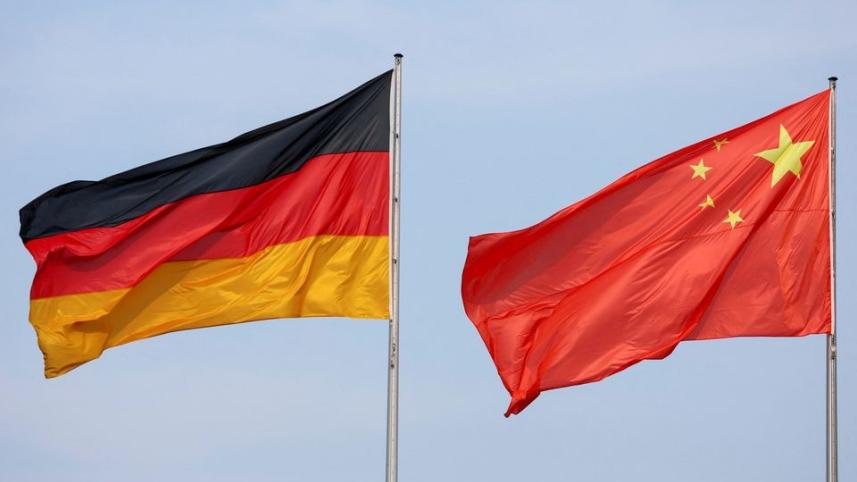Germany’s China policy makes life easier for its companies

German corporate bosses like Martin Brudermüller of chemicals giant BASF and Thomas Schäfer of carmaker Volkswagen have one less thing to worry about when it comes to China. So do their shareholders.
Germany's coalition government, long divided among its parties on how far Berlin should go to insulate itself from its biggest trading partner, has finally published its first strategy on the People's Republic. Europe's largest economy made it clear it's now aligning more with Brussels and Washington on everything from supply chain risks and technology export controls to human rights concerns, after years of viewing China primarily as a lucrative market.
The final document does not shy away from what used to be viewed as taboo topics such as positions on self-governed Taiwan, which China claims as its own. Yet it has been shortened and watered down from a confidential draft in November drawn up by the foreign ministry led by the Greens' Annalena Baerbock. Back then one idea was to aggressively push for companies to disclose details of their China business, and even to stress-test their exposure, according to a draft seen by Reuters.
That could have included non-public details on profit and joint ventures with local partners, a person familiar with the situation told Reuters Breakingviews. Some feared that would lead to forced divestment. Now such discussions can be held privately with the government, with no specific red lines drawn.
The compromise likely stems from the realisation that China is simply too strategic to quit quickly without inflicting significant pain. It is the world's top chemical market, for example, prompting Brudermüller to stress in the 2022 annual report that "not having a presence in large growth markets, such as China, would be a major risk for BASF".
The People's Republic is also Volkswagen's largest market, accounting for around 40 per cent of Volkswagen's global unit sales in 2022. A survey conducted by the ifo Institute showed that half of German firms in the manufacturing sector currently depend on important intermediate inputs from China.
It's likely that when Germany rolled out the red carpet in Berlin last month for Li Qiang, China's new premier was well-briefed about this direction of travel. A weaker domestic economy constrains Beijing's scope to react aggressively, anyway.
Doing so would only diminish the country's renewed commitment to expand market openness, and jeopardise its goal of stabilising foreign investment. There has also been an acknowledgment that the era when the government could shape its European Union relations through close ties with Berlin has gone.
The likes of VW and BASF still face tricky times. If the EU sought to introduce tariffs on Chinese electric vehicles, for example, German carmakers might still be caught in the middle. Even so, executives will be relieved they can for the most part undertake China de-risking at their own pace.
Germany's first China strategy, published on July 13, outlined possible responses to an "increasingly assertive" Beijing, such as adjusting export controls and outbound investment restrictions.
It said that Germany will show solidarity with European Union member states facing economic or other pressure because of the actions of China, relaunch human rights and rule of law dialogue with China, and expand close relations with Taiwan.
In response, China said it is a partner for Germany in dealing with challenges and hopes Germany can see its development "rationally, comprehensively and objectively", according to a statement by the Chinese embassy in Berlin on July 13.
Germany had planned to make companies disclose more information about their exposure to China, and possibly conduct stress tests for geopolitical risks, as part of the broader strategy towards China, according to a confidential draft document seen by Reuters in November 2022.
 For all latest news, follow The Daily Star's Google News channel.
For all latest news, follow The Daily Star's Google News channel.